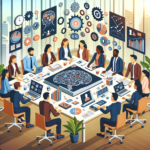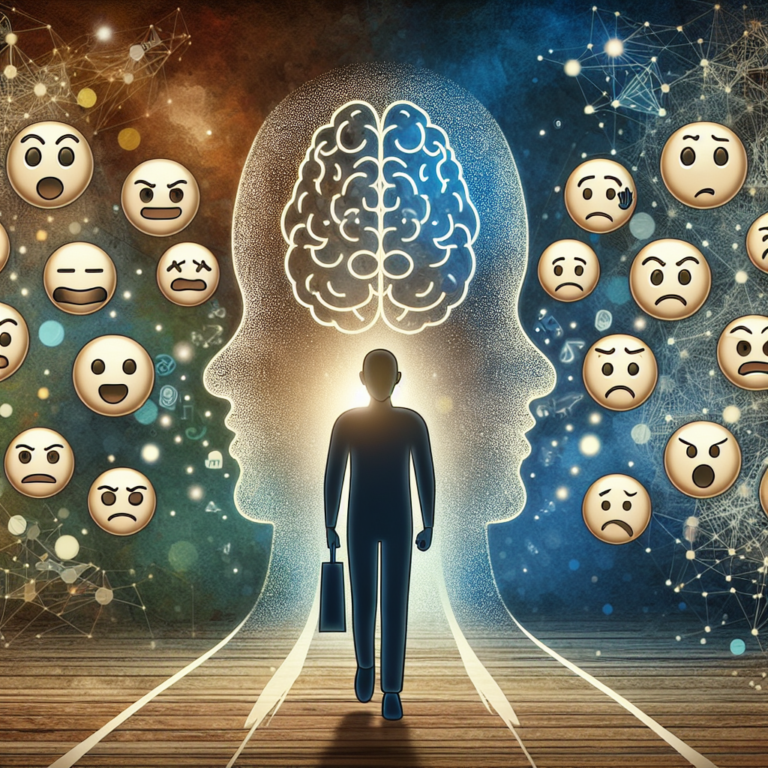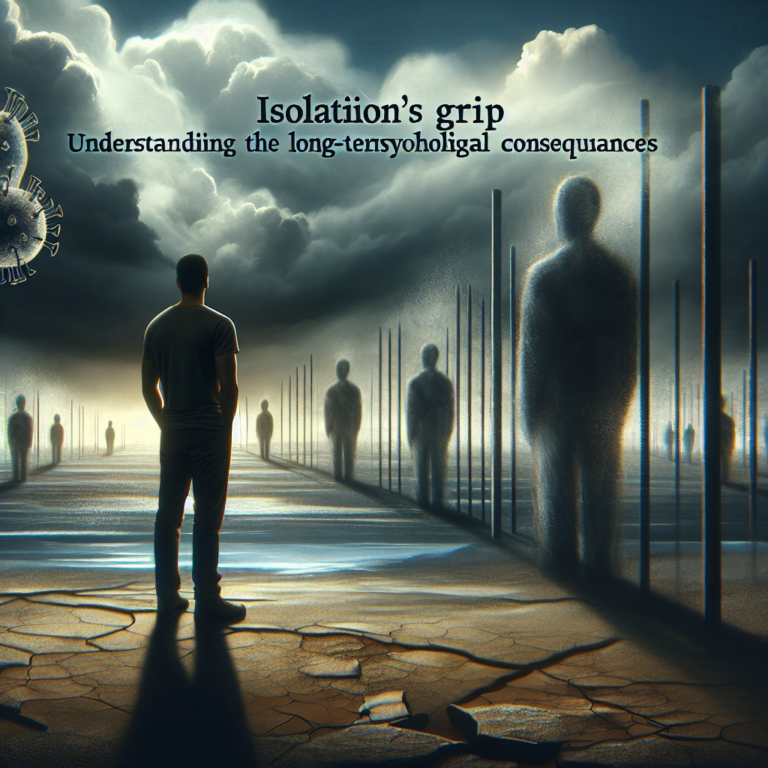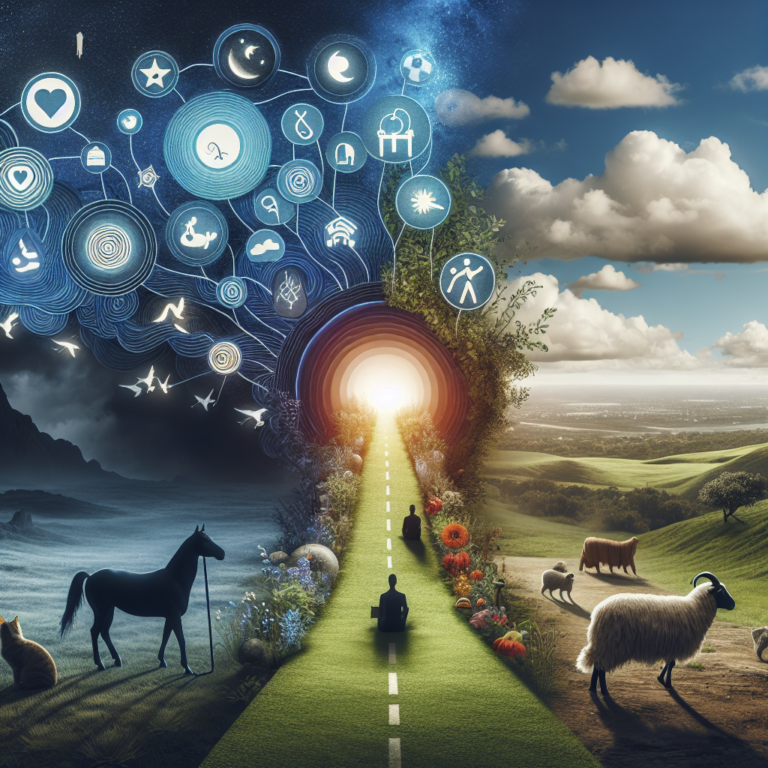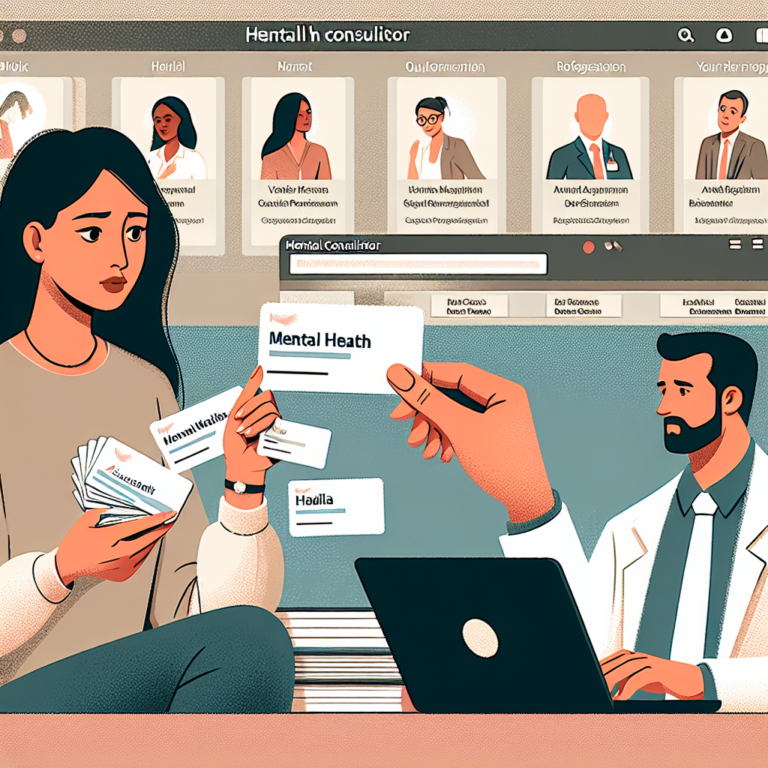
Lifelong Learning: How Psychology Breaks Down the Stages of Human Development for Ultimate Growth
Introduction
In an ever-evolving world characterized by rapid technological advancements and shifting societal norms, the concept of lifelong learning has never been more relevant. Lifelong learning is the continuous pursuit of knowledge and skills over a person’s lifetime, driven by personal and professional growth. But how does psychology illuminate the various stages of human development, enhancing our understanding of this crucial concept? This article delves into the intricate relationship between lifelong learning and human development, revealing how psychological principles can facilitate better learning and growth at all stages of life.
The Importance of Lifelong Learning
Lifelong learning isn’t merely a trend; it’s an essential component of personal and professional success. In workplaces increasingly prioritizing adaptability, the ability to learn and unlearn effectively is invaluable. A report from the World Economic Forum projects that over 1 billion workers will need to reskill by 2030, highlighting the crucial need for effective lifelong learning strategies.
The significance of understanding how psychology breaks down the stages of human development is vital for fostering a culture of lifelong learning. Each developmental stage presents unique challenges and opportunities that can benefit from tailored educational approaches, ultimately ensuring that individuals can navigate their learning journeys effectively.
Understanding Human Development Stages
To appreciate the role of lifelong learning, one must first understand the stages of human development. Psychologist Erik Erikson proposed that human development occurs through eight stages, each characterized by specific challenges and opportunities for growth.
Table 1: Erikson’s Eight Stages of Development
| Stage | Age Range | Psychosocial Crisis | Positive Outcome |
|---|---|---|---|
| 1. Trust vs. Mistrust | Infancy (0-1 years) | Trust | Sense of security |
| 2. Autonomy vs. Shame | Early Childhood (1-3 years) | Autonomy | Confidence in self-control |
| 3. Initiative vs. Guilt | Preschool (3-6 years) | Initiative | Leadership and decision-making |
| 4. Industry vs. Inferiority | School Age (6-12 years) | Industry | Competence and achievement |
| 5. Identity vs. Role Confusion | Adolescence (12-18 years) | Identity | Strong sense of self |
| 6. Intimacy vs. Isolation | Young Adulthood (18-40 years) | Intimacy | Deep relationships |
| 7. Generativity vs. Stagnation | Middle Adulthood (40-65 years) | Generativity | Meaningful contributions |
| 8. Integrity vs. Despair | Late Adulthood (65+ years) | Integrity | Fulfillment and wisdom |
Lifelong Learning and the Stages of Development
Each stage of development is intrinsically linked to the concept of lifelong learning. Individuals may encounter different motivations, learning styles, and challenges based on their stage. For instance, a young adult navigating intimacy may benefit from skills in emotional intelligence, which can serve lifelong personal and professional relationships. Below, we analyze specific stages and their connection to lifelong learning.
Stage 1: Trust vs. Mistrust
The foundation of trust set in infancy shapes our future relationships. For lifelong learning, fostering a nurturing environment during this phase is crucial. Adults who have a secure sense of trust are more open to experiences and willing to step outside their comfort zones to learn new skills.
Case Study: A nursery program implementing attachment theory principles found that children exposed to consistent caregivers developed better social skills. These children, in turn, were more engaged in learning activities.
Stage 2: Autonomy vs. Shame
As children begin to assert their independence, opportunities arise for fostering autonomy through exploratory learning experiences. Positive reinforcement encourages further exploration and skill acquisition.
Case Study: A toddler activity center emphasized autonomy by providing choices in their learning. Results showed that children who selected their activities demonstrated greater engagement and retention of knowledge.
Stage 3: Initiative vs. Guilt
During the preschool years, creative play fosters initiative. Those who feel supported can build confidence in their ability to take risks in learning, essential for lifelong learners.
Case Study: A preschool focusing on project-based learning showed that children engaged in collaborative tasks developed problem-solving skills, laying a foundation for lifelong learning by reinforcing initiative.
Stage 4: Industry vs. Inferiority
Elementary education often singles out students based on performance, leading to feelings of inferiority among some. Emphasizing incremental progress rather than competition can cultivate resilience and a lifelong love of learning.
Case Study: A school district that transitioned to a growth mindset approach reported an increase in student motivation, with students demonstrating improved academic performance and a stronger sense of self-efficacy.
Stage 5: Identity vs. Role Confusion
Adolescents are at a heightened risk of role confusion, making identity exploration critical. Lifelong learning during this stage often involves self-discovery workshops that promote career exploration and personal interests.
Case Study: A community center offering mentorship programs helped teens identify their strengths and interests, leading to increased engagement in vocational training and educational pursuits.
Stage 6: Intimacy vs. Isolation
In young adulthood, academic and professional settings often encourage lifelong learning opportunities through workshops and networking events. Building relational skills during this stage is vital for personal and career growth.
Case Study: A corporate initiative designed to improve emotional intelligence saw employees engage in more collaborative projects, enhancing both interpersonal relationships and workplace learning.
Stage 7: Generativity vs. Stagnation
As individuals reach middle adulthood, the focus often turns to generativity—contributing to society through mentorship and leadership roles. Lifelong learning becomes crucial as individuals share their knowledge and skills with others.
Case Study: A nonprofit organization that paired seasoned professionals with younger generations saw a remarkable transfer of knowledge and skills, promoting a culture of mentorship and continuous learning.
Stage 8: Integrity vs. Despair
In late adulthood, reflecting on life experiences invites opportunities for lifelong learning, often through storytelling, artistic expression, or community involvement. Sharing one’s legacy can inspire new generations.
Case Study: A program that connected seniors with local schools to share life experiences not only benefited the students but also provided the seniors with a renewed sense of purpose and achievement.
Practical Strategies for Lifelong Learning Across Stages
The insights from psychology illuminate various strategies to promote lifelong learning relevant to each developmental stage.
- Create a Safe Learning Environment: Encourage trust, allowing for exploration without fear of failure.
- Encourage Autonomy: Provide choices in learning activities to instill confidence.
- Foster Initiative: Use project-based learning and creative play to enhance engagement.
- Promote a Growth Mindset: Emphasize progress, resilience, and skill development over competition.
- Facilitate Mentorship: Establish relationships that allow for sharing knowledge and skills.
Conclusion
Lifelong learning is a vital journey that aligns seamlessly with the stages of human development. Recognizing how psychology breaks down these stages provides invaluable insights into fostering a continuous learning mindset. By understanding the unique challenges and opportunities presented throughout life, we can create environments and systems that promote lifelong learning for everyone, encouraging personal growth, professional success, and deeper connections with others. Start your journey today—embrace the transformative power of lifelong learning.
FAQs
1. What is lifelong learning?
Lifelong learning is the ongoing, voluntary process of acquiring new or enhancing existing skills and knowledge throughout one’s life, essential for personal and professional development.
2. How does psychology relate to lifelong learning?
Psychology provides insights into human development stages, illuminating how individuals can effectively learn and adapt at various life phases.
3. What are the benefits of lifelong learning?
Lifelong learning leads to enhanced employability, personal growth, improved cognitive skills, and greater adaptability to change.
4. Can lifelong learning be applied in the workplace?
Absolutely! Organizations can implement continuous training, development programs, mentorship, and flexible learning opportunities to promote lifelong learning among employees.
5. How can I start my lifelong learning journey?
Begin by identifying your interests, setting learning goals, seeking out educational opportunities, and creating a support system that encourages growth and exploration.
In summary, lifelong learning is more than just a buzzword; it’s a crucial approach to growth that aligns with psychological principles of human development, ensuring that we remain adaptable, curious, and engaged throughout life.
